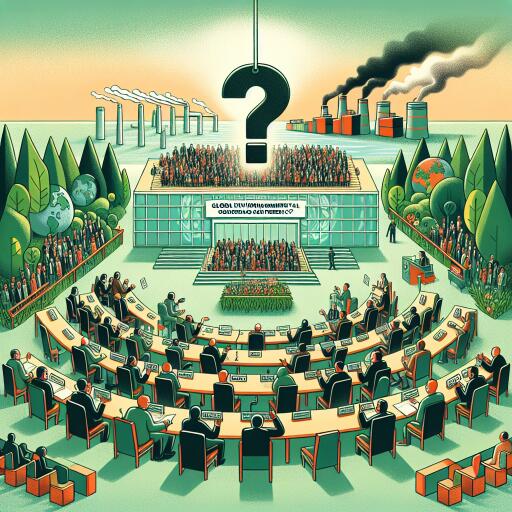
COP29: Was it a Joke?
The 29th Conference of the Parties (COP29) of the United Nations Framework Convention on Climate Change concluded with much difficulty in Baku, Azerbaijan, last November. The host nation, known for its oil wealth, saw its leader exalt fossil fuels as a divine blessing in his address.
The proceedings were fraught with challenges. There was a discernible steering of the agenda, failing to solidify last year’s COP28 decisions that urged countries to “move away from fossil fuels” and align climate commitments with the 1.5°C global warming cap.
A noticeable rift emerged over setting a new climate finance target and the decision to advance the COP28 agreement on fossil fuel reduction. This issue was deferred until COP30 in Brazil next year, with a renewed focus on financial mechanisms instead. The overwhelming presence of approximately 1,700 fossil-fuel industry representatives perhaps provides insight into these priorities.
When the COP29 presidency unveiled a draft on climate finance, proposing a defined monetary goal, there was widespread resistance. Delegates from the Least Developed Countries Group and the Alliance of Small Island States temporarily withdrew from the talks, protesting that the proposal jeopardized climate action over the coming decade.
After prolonged debates and eleventh-hour negotiations, developed nations consented to transfer “at least” $300 billion annually by 2035 to support developing countries in tackling climate adversity.
This agreement leaves many questions unanswered, both economically and ecologically. How effective will this financial aid be? Can it stave off future droughts? Mitigate flooding? Halt rising seas or the thawing of polar ice?
Will it arrest the relentless loss of biodiversity? Will it shield developed nations from ecological disasters exacerbated by the ongoing delay in fossil-fuel emissions control by wealthier countries?
Will it alleviate the shared social, ecological, and economic burdens between rich and developing countries? What measures will curb the reckless consumption of this supposed “gift from the gods”?
In the meantime, global temperatures and emissions persist in their upward trajectory. Climate anomalies manifest more frequently and with unforeseen intensity.
This outcome has prompted criticism that the COP process is obsolete and calls for countries unwilling to phase out fossil fuels to be barred from leading future conferences.
The forthcoming COP30 may prove pivotal, especially given the United States’ new stance against the Paris Agreement’s resolutions. There are whispers of the European Union, the United Kingdom, and China filling the void to lead climate progress.
What lies ahead for our planet and its inhabitants with the impacts of climate change at our doorstep? It appears affluent nations are opting to settle this existential threat with cash, foregoing true ecological solutions. Is $300 billion compensation enough for developing nations to continue without substantial change?
As the applause fades from the assembly halls in Baku, one might wonder if this agreement signifies merely a costly gesture of postponing a much-needed departure from a perilous future.





Leave a Reply